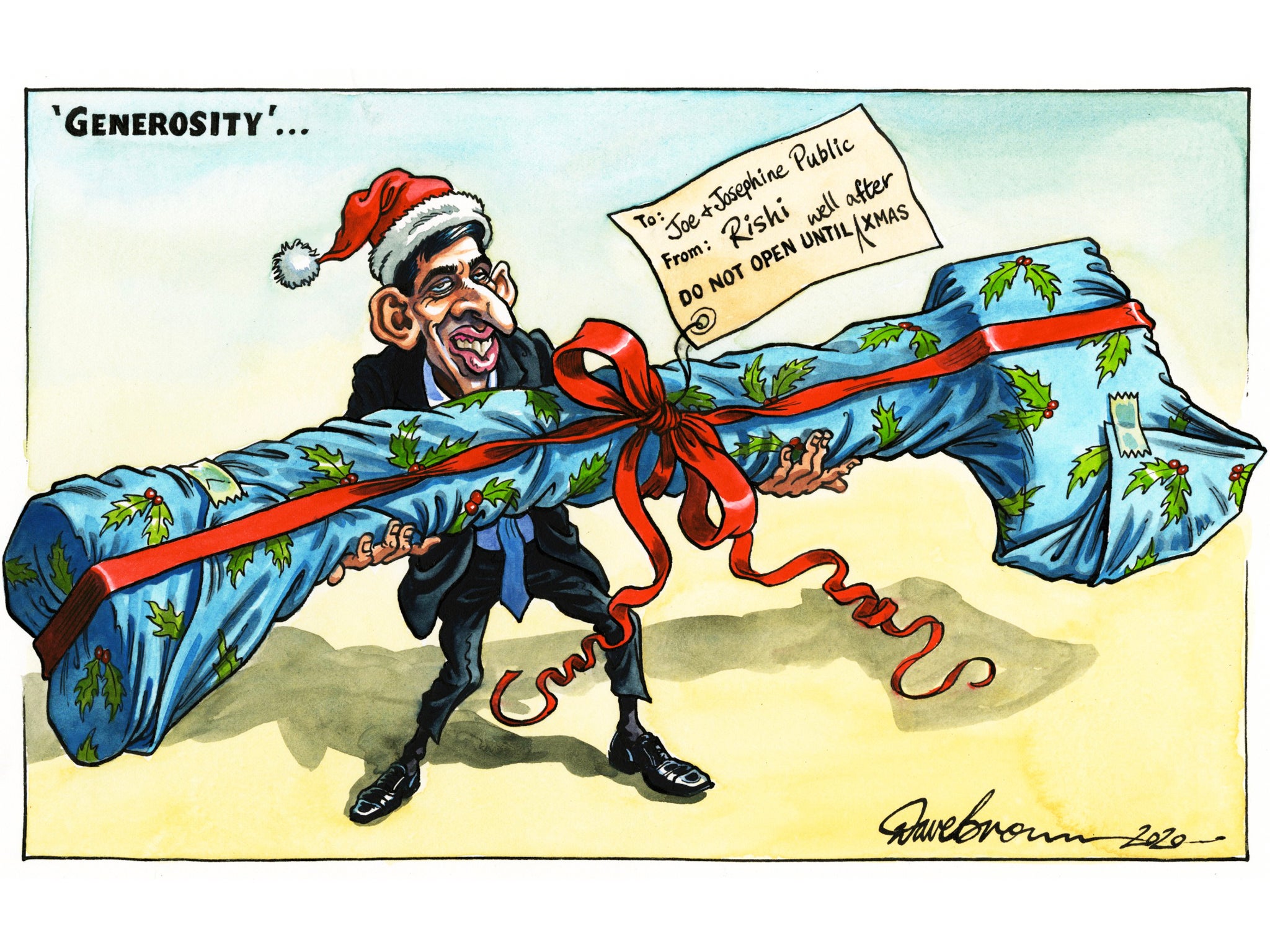Rishi Sunak cannot avoid the subject of higher taxation forever
Editorial: The chancellor was wrong on some of the harshest measures in his spending review, but the Tory leader of the day will have even tougher choices to make before the next election

Polished and plausible as ever, Rishi Sunak once again put the best, most reasonable-sounding spin he could on a set of numbers that represents the biggest economic shock to the public finances since the war. A public borrowing requirement of £394bn for this fiscal year is indeed a peacetime record, with another £164bn to come next year, and £100bn per annum to the mid-2020s. And all funded at record low interest rates, albeit partially through the creation of money by the Bank of England, and subdued inflation. Not so much a magic money tree, then, as a vast rain forest of plenty, a practically inexhaustible source of cheap money. In passing, and in all fairness, begs a few questions about what Conservative ministers said concerning Labour’s “unaffordable” fiscal plans at the last general election.
Awesome as all of that sounds, it would be even higher, as the chancellor argued, had the government not supported the economy through the furlough schemes and similar expensive measures. Even so, unemployment will still hit 2.6 million next year as the full after-effects of the Covid crisis and Brexit (bizarrely not even mentioned), work themselves through the economy. In human terms that can only mean more long-term poverty, family breakdowns, and poorer health. That is the social and economic “scarring” of the nation that is only now starting to be felt during lockdowns.
Yet Mr Sunak was stunningly unconvincing on the meanest measures in his statement. Given that the economy will need support next year, there seems little sense in a partial public sector pay freeze next year. The chancellor’s argument is that because private sector staff and the self-employed have suffered worse pay cuts, furloughing, and job losses, it is “unfair” for firefighters, teachers, the police, and others outside the NHS to have a 2 per cent increase – which would still be a freeze in real terms. There is no necessity for those in the public sector to suffer a cut in their living standards because those in parts of the private sector, such as hospitality, have endured hardship; freezing a headteacher's wages does nothing for an unemployed chef. Indeed more money being pumped into the economy through a stable public sector would boost activity in pubs and restaurants, so long as they can stay open.
Mr Sunak was also quite wrong to claim that slashing the overseas aid budget is unavoidable and a “tough choice”. Politically, cynically even, it is no such thing. Thanks to some old prejudices and misleading reportage, the British voting public have in fact little sympathy for sending money to “foreigners”, supposedly wasted or stolen by dictators. It’s rich given the reputation this government has gained for wasting money on cosy contracts for cronies, but it’s also a gross distortion of the reality and achievements of the now-scrapped Department for International Development. It is no coincidence that the £4bn shaved off overseas development is the same sum that has been found for the new “Levelling Up” fund. This otherwise laudable scheme to regenerate depressed communities is to be tightly controlled by HM Treasury, rather than untrustworthy Labour and Liberal Democrat-controlled councils, and will be run by local MPs. It looks very much like a scheme to funnel cash towards the “red wall” seats won by the Conservatives at the last general election. It does not look especially transparent, in any case: less money for controlling Ebola in Burundi (no votes) but more for sprucing up, say, Bury North (Conservative majority: 105).
Perhaps it was just as well that Mr Sunak avoided the impact of Brexit on the economy and the public finances. The Office for Budget Responsibility puts the cost at 1.5 per cent per annum over the long run. The governor of the Bank of England, Andrew Bailey, has made a similar assessment.
The other unspoken word was “tax”, even though rumours about hikes to capital gains tax and cuts to pension tax relief have been circulating for days. Again, it is probably for the best, given the fragility of consumer confidence, but the chancellor cannot avoid the delicate subject forever. As the immediate public health and economic crises recede over the next few years, attention should turn to constraining the rise in national indebtedness, and taxation has to be part of the answer. The trouble with that debate will come just as the next general election is due. The Tory leader of the day will have some more tough choices to make, and the country knows Boris Johnson prefers to have his cake and eat it. Might Mr Sunak wonder if he will be by then the prime minister having to make them?
Join our commenting forum
Join thought-provoking conversations, follow other Independent readers and see their replies
Comments


Bookmark popover
Removed from bookmarks